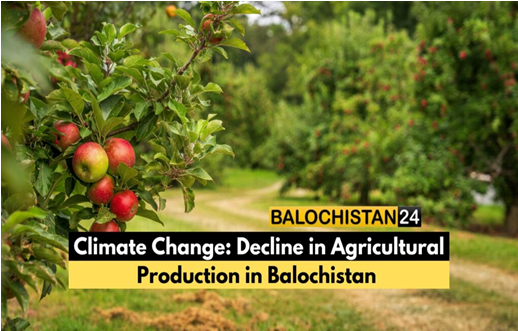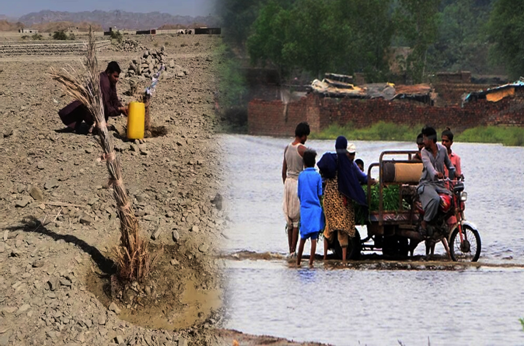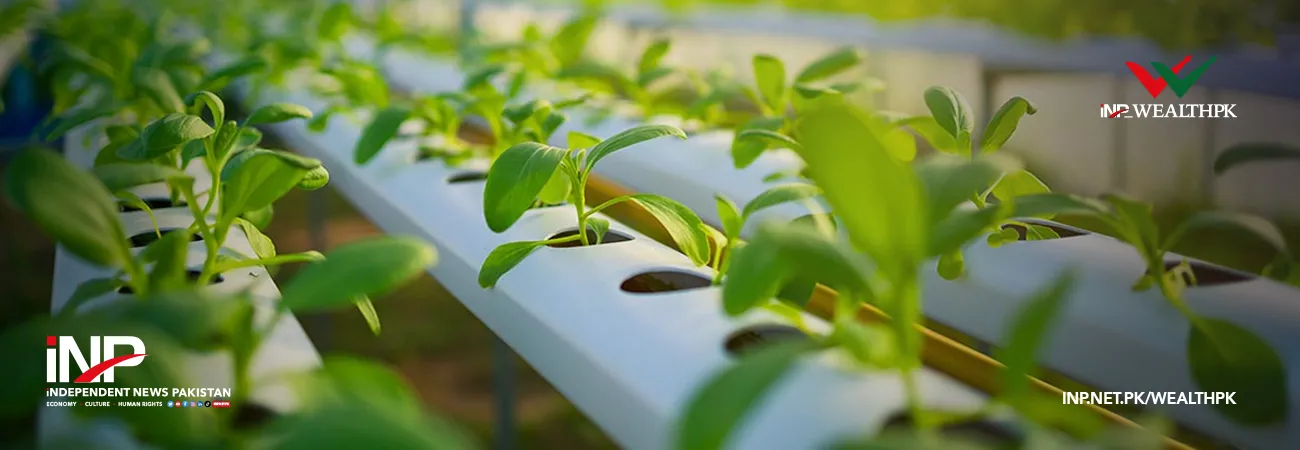INP-WealthPk
Ahmed Khan Malik
Climate change has emerged as a major challenge for Balochistan's horticulture sector, threatening crop yields, quality, and livelihoods of thousands of farmers, reports WealthPK.

The rising temperatures, erratic rainfall, prolonged droughts, and water shortages are significantly affecting agricultural productivity, experts said. Balochistan, the largest province of Pakistan by area, is known for its rich horticultural diversity, producing high-quality fruits such as apples, cherries, pomegranates, grapes, and apricots.
“Balochistan’s horticultural crops thrive in its unique climate, but the increasing temperatures are altering the traditional growing conditions. Extreme heat during critical growth stages affects fruit development, leading to reduced yields and lower-quality produce,” Shahid Jamaldini, an expert at the Balochistan Agricultural Institute, told WealthPK. For example, apples and cherries require chilling hours for proper fruiting, but rising temperatures are shortening these periods, resulting in poor-quality fruit or reduced production, he said.

He said water is a critical resource for horticulture, and Balochistan already faces severe water shortages due to limited rainfall and over-extraction of groundwater. Climate change has worsened this situation, with prolonged droughts leading to reduced irrigation water availability. Many orchards are drying up, forcing farmers to abandon cultivation or switch to less water-intensive crops. Shahid said the unpredictable rainfall patterns are another major concern. While some areas experience prolonged dry spells, others suffer from sudden heavy downpours causing flash floods.
Excessive rain at the wrong time can damage flowers and fruits, leading to lower yields. Additionally, soil erosion and waterlogging further degrade land quality, making it difficult for farmers to maintain their orchards. He said climate change has also led to an increase in pest attacks and plant diseases. Warmer temperatures provide favorable conditions for pests such as fruit flies, aphids, and fungal infections to thrive. Traditional pest control methods are becoming less effective, leading to higher production costs and increased use of chemical pesticides, which can further degrade soil and water quality.
Changing climate patterns, combined with unsustainable farming practices, are depleting soil nutrients. Excessive use of chemical fertilizers, lack of organic matter, and reduced rainfall have contributed to soil degradation, affecting plant health and reducing overall productivity. Manzoor Achakzai, an agriculturist in Pishin district, said farmers in Balochistan are facing multiple challenges due to climate change. He said lower crop production is reducing farmers’ incomes and making horticulture less profitable. The cost of irrigation, fertilizers and pesticides is also increasing, putting farmers under severe financial pressure.
Many farmers lack access to modern irrigation techniques, climate-resilient crops, and scientific knowledge to combat climate-related issues. Poor-quality produce due to climate stress faces rejection in export markets, limiting economic opportunities. He said Balochistan’s horticulture sector is facing serious challenges due to climate change, impacting both productivity and economic stability. Without immediate action, the once-thriving fruit industry of the province may experience a decline.
However, with the right policies, advanced farming techniques, and improved water management, farmers could adapt to these challenges and sustain their livelihoods, he said, adding that a collaborative effort between the government, researchers, and farmers is essential to ensure a climate-resilient future for Balochistan’s horticulture sector.
Credit: INP-WealthPk




